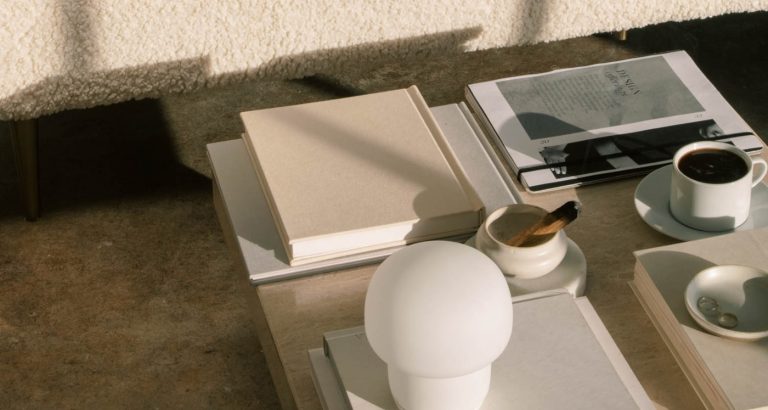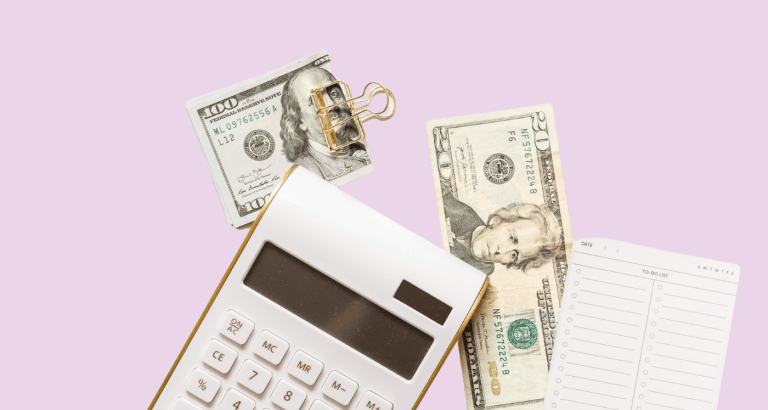Advantages and Disadvantages of Budgeting [You Need To Know]
![Advantages and Disadvantages of Budgeting [You Need To Know] 1 Advantages and Disadvantages of Budgeting cash and calculator on pink background](https://herpaperroute.com/wp-content/uploads/2021/11/Advantages-and-Disadvantages-of-Budgeting.png)
Budgeting is a good habit, and it can help you do a lot financially. But few people are excited when they hear this word.
Some downsides and upsides exist for budgeting, and maybe you’ve found that yours isn’t working for you. Perhaps thinking about money is the last thing you want to do at the end of the day, or you feel that it’s confusing.
As an affiliate partner of various brands and sponsored content, HerPaperRoute may earn commission on qualifying purchases. Disclaimer
If that’s the case, find out why and what to change to make it more effective. Here are the advantages and disadvantages of budgeting.
![Advantages and Disadvantages of Budgeting [You Need To Know] 3 Things they don't want you to know about money and budgets advantages and disadvantages of budgfeting revealed](https://herpaperroute.com/wp-content/uploads/2021/11/Advantages-and-Disadvantages-of-Budgeting-they-dont-tell-you.jpeg)
What are the disadvantages of having a budget?
Everything has pros and cons, and planning out your spending is no exception. Find out what the drawbacks are here.
Can feel like a restriction
One of the reasons that people struggle with a budget is because it feels restricting. No one wants to be told what to do with their money.
It’s hard to get used to the idea of not buying something just because you want it, or having to add something into your plan before spending. Yes, budgeting might look like a lot of rules, but think of it this way: it’s just about planning out your goals. And you are completely in control!
It’s you deciding what you want to do and then creating an organized method of getting there. You’ll pay for the things you need while also saving for the items you want. While this doesn’t mean that you can afford everything right away, it does give you a road map for how to get there. Financial planning becomes a much more positive experience when you realize it’s only there to help you.
Stress
Constantly thinking about finances can be highly stressful. This is especially true if your budget isn’t realistic or you find yourself continually having trouble sticking to your plan.
CNBC states that 73% of people in America find themselves more stressed out about money than anything else.
It’s tempting to give up and assume the budget is the problem. But the real issue may be that you’re working against your natural tendencies or aren’t placing the right amount of funds in categories.
This is something that you can fix, though. When done right, budgeting can stop or lessen money stress because you have a plan, no matter how things look in the moment.
Not choosing the system that works for you
Everyone is unique, and your money goals can fall apart quickly if you use a method that isn’t right for you.
For example, if you prefer pen and paper, don’t use an app or a spreadsheet for money. You might also be using percentage rules or guidelines that don’t fit your lifestyle, causing your budget to break.
Something else that’s easy to do is to try to follow a budget plan that works for others, but not necessarily you. You should create your own money goals instead of using what worked for another person.
To fix this, sit down and take a look at your spending versus your budget. Look at the areas that are causing the most trouble, and decide how to make your system better. There are many ways to do this – coming up with a plan is the only thing that matters.
Related: Easy Steps to Create A Budget, Even if You’re a Complete Beginner
Examples of where you might be budgeting too much or too little could be fun money, gas for your car, or eating out. Feel free to change things around to make your plan your own, and don’t forget about sinking funds.
My other tip is don’t make it too complicated. People sometimes spend too much time deciding how to budget rather than creating something that works. Too much research or trying a lot of different techniques may not be the answer. Instead, go for the most straightforward approach that makes sense and gets results.
Takes time
You may struggle to create a budget when all the days feel so busy. The good news is, that budgets don’t have to take forever to make.
Sure, you could spend hours a week looking over numbers, but it’s easy to create a quick money plan in a short amount of time, especially if you use a template like my budget binder printable or my digital profit planner.
There are a few things you can do to shorten your planning time. First, you can set a timer and only work until it goes off. You can also limit all your budget planning to once a week or once a month.
Or, you might choose to check on your finances a few minutes throughout each day, saving yourself energy and only occasionally sitting down to do a big-budget session.
![Advantages and Disadvantages of Budgeting [You Need To Know] 5 monthly-budget-worksheets-signup-600x400-2](https://herpaperroute.com/wp-content/uploads/2021/11/monthly-budget-worksheets-signup-600x400-2.jpeg)
What are the purposes of budgeting?
Why does it even matter? Here are the top things that make budgeting worthwhile.
Tracks your spending
This is one of the advantages and disadvantages of budgeting, depending on what you find while tracking your spending. But it’s ultimately a good thing.
Budgeting helps you know where your money is going. If you don’t see what you spent money on, it’s going to be hard to find out if you’re using your finances correctly.
So, take a look.
There are several approaches to this. You can check your bank account each day or write it down every time you spend money. I’d recommend checking your accounts because there’s less room for error.
You can add everything up at the end of the week or month and see how much you spent in each category, or you can add up your totals day by day.
Keep track of what you spend somewhere, probably in budget planner, for efficiency. The point is, within a month or two, if you keep it up, you should end up with a pretty good idea of where your money goes.
You’ll also know whether you’re over or underspending in categories. Food is a category that is overspent on so it’s helpful to know how much you should spend on groceries, generally.
Controls your spending
Taking charge of your money is one of the hardest things to do. Controlling your spending is essential, though, because no matter how much you make, you can outspend it if you constantly buy things without thinking.
Take some time to evaluate your spending to see if it lines up with your lifestyle and goals. If not, make some changes that allow you to prepare for what matters most.
It’s also a good idea not to tempt yourself financially when you first begin budgeting. You might try avoiding situations that make you spend more.
For example, if you love to buy clothes, don’t check out your favorite stores for a while. It isn’t permanent, and it’s just something to do for a time to give your budget a chance to work.
Once you see the savings piling up and the budget doing its job, it will be easier to say no to unnecessary things, and yes to what you’ve saved for.
Offers Consistency
Consistency is another difficult one, but it’s so important. Once you find a system that works well, keep using it.
Give yourself some time to get used to your new budget, knowing that you can make changes or adjustments as you go. After a while, you should start feeling like it’s getting easier to budget, or at least becoming more routine.
Because of being consistent with a budget, you can pay bills, pay off debt, and save for things you want. So no matter what, stick to the process. Repetition is a good thing for finances that can change your life for the better, given the time.
The Benefits of Creating a Personal Budget
You can achieve so much by using a personal budget. They go beyond bill paying to help you achieve your dreams, set you up for the future, and help you feel secure financially.
Achieve financial goals
No longer do you have to look at your financial dreams and think of them only as ideas that might not happen. A budget can get you there.
Think about what your goals are. Do you want to see the world? Save for your children’s college? Buy a house?
All these things are possible with good financial organization.
Remember – the only bad thing about a financial goal is not creating one. Instead, think about your dreams and assign a number to them.
How much money will it take? Then brainstorm and calculate how to get to that number while still paying your bills and saving money for the future.
Achieving goals is even better when you work hard for them and can see yourself making progress. Being able to buy things you want or need will keep up your motivation.
It’s a good idea to have a mix of long, short-term, and intermediate goals. That way, you will see some progress quickly and not get burnt out while saving for your long-term money objectives.
Manages your debt
The simplest way to life without debt is to stick to a budget. You can start by making sure you’re current on your credit card balances, and try to stop using credit, so you don’t take on any more debt.
From there, begin paying off a little extra each month, and soon, you’ll start to see progress. Add your additional payments into your budget, and do the work to make it happen.
Your budget will also remind you when payments are due on credit cards, so you don’t miss one.This will help you create a better financial future by building up the habit of paying on time and keeping you from costly fees.
Makes your money work for you
Budgeting is you taking control of your finances. You’ll stop mindlessly spending, and instead, your money will grow and pay for the things you need. Years of healthy budgeting will reflect positively on your finances and future.
It’s one of those things that’s challenging to get started with, but the beginning is the hardest part. Once budgeting becomes part of your life, you’ll find that it’s simple to stick with.
Your budget can soon begin doing the work for you. First, it will become routine, and then your savings will start to grow. After a while, your budget should be working a lot harder than you at reaching your goals.
Develops good habits
You can make almost anything in your life better by adding in good habits. A weekly or monthly budget is an excellent habit.
You’ll see that holding yourself to high standards with money will also reflect in other areas of your life.
Once you’ve mastered budgeting, think beyond it. What other financial habits can you add in?
Things like investing, emergency funds, and financial education are necessary for your life, and it’s great to build them into your routine.
Related: Money Habits of Women Who Are Never Broke
Security
Money can provide some security for your life. Knowing that you have what you need for your bills and can pay for an emergency without going into debt can help you feel financially secure. These things only happen when you budget consistently.
Eventually, budgeting can get you to a place where you’ve saved and invested enough to not think much about it anymore.
Then, because you’ll have enough for everything you need, you can turn your attention to other goals and dreams.
The advantages and disadvantages of budgeting will suddenly seem worthwhile. This is the ideal situation for financial security, and it’s all made possible by being financially organized.
These are the pros and cons of personal budgeting
Although budgeting has some cons, you’ll find that most of them are just setbacks, and you can usually fix things when you take a little time to find systems that work better. And the pros are almost endless!
Pros of personal budgeting include living without debt, financial security, and building better routines that create a positive life.
While it may seem intimidating at first, you’ll soon find that money looks a lot less scary with a budget in place. It’s an effective and simple way to win financially.
Personal budgeting is a skill that will help you throughout your life, so you should master it as soon as possible. And you can begin budgeting any time you want.
Now you understand the advantages and disadvantages of budgeting, so start today to take control of your money journey and create the financial future you deserve.
![Advantages and Disadvantages of Budgeting [You Need To Know] 7 cash envelopes showing what you should consider when reviewing the advantages and disadvantages of budgeting](https://herpaperroute.com/wp-content/uploads/2023/11/advantages-and-disadvantages-of-budgeting.jpg)
Follow along on Instagram!


![Advantages and Disadvantages of Budgeting [You Need To Know] 2 Things they don't want you to know about money and budgets advantages and disadvantages of budgfeting revealed](https://herpaperroute.com/wp-content/uploads/2021/11/Advantages-and-Disadvantages-of-Budgeting-they-dont-tell-you-180x180.jpeg)
![Advantages and Disadvantages of Budgeting [You Need To Know] 4 therapy findr - best way to find online therapists](https://herpaperroute.com/wp-content/uploads/2025/07/therapy-findr-ad.jpg)
![Advantages and Disadvantages of Budgeting [You Need To Know] 6 masterclass become a content creator](https://herpaperroute.com/wp-content/uploads/2024/09/become-a-content-creator-free-class.jpg)
![Advantages and Disadvantages of Budgeting [You Need To Know] 8 entrepreneur planner profit business planner notion](https://herpaperroute.com/wp-content/uploads/2024/02/profit-business-planner_lg-copy.jpg)





![17 Advantages & Disadvantages Of A Cash Budget [In Your Day To Day Life] 14 Advantages and Disadvantages Of A Cash Budget](https://herpaperroute.com/wp-content/uploads/2021/11/Advantages-and-Disadvantages-Of-A-Cash-Budget-768x410.png)